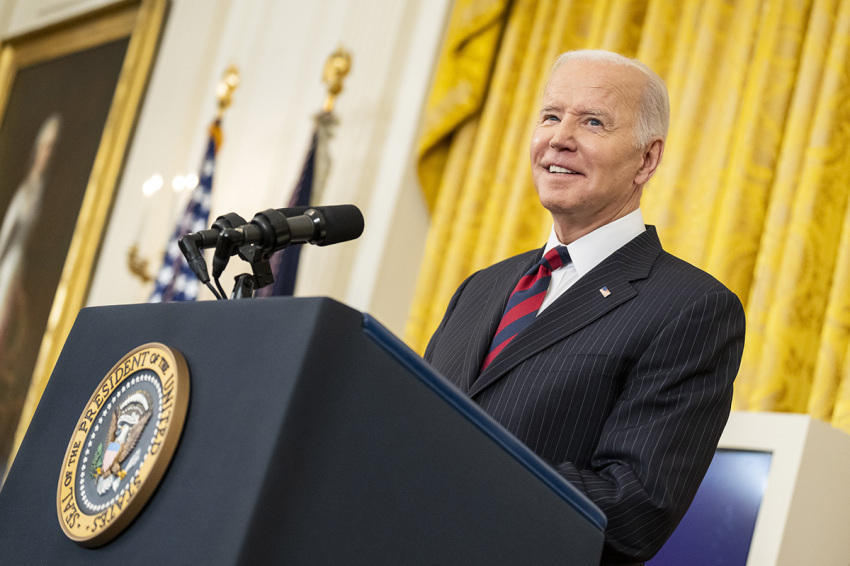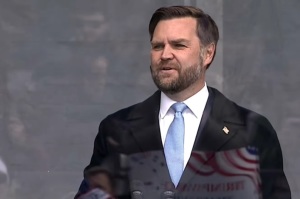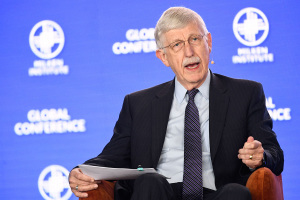Biden announces student loan forgiveness plan; critics say it's a ‘bailout for the wealthy’

The Biden administration has announced a plan to forgive student loan debt for people from middle class and lower income households, in an effort to fulfill a campaign promise.
In a fact sheet released Wednesday, the administration announced a three-part plan aimed at canceling $10,000 of student loan debt for people making less than $125,000 a year.
“Since 1980, the total cost of both four-year public and four-year private college has nearly tripled, even after accounting for inflation. Federal support has not kept up,” stated the fact sheet.
“Pell Grants once covered nearly 80 percent of the cost of a four-year public college degree for students from working families, but now only cover a third.”
The White House cited an analysis from the U.S. Department of Education which claimed that the average undergraduate student graduates with approximately $25,000 in debt.
“The skyrocketing cumulative federal student loan debt—$1.6 trillion and rising for more than 45 million borrowers—is a significant burden on America’s middle class,” continued the fact sheet.
“Middle-class borrowers struggle with high monthly payments and ballooning balances that make it harder for them to build wealth, like buying homes, putting away money for retirement, and starting small businesses.”
The announced plan of the administration is to have Education Department provide up to $20,000 in debt cancellation to Pell Grant recipients and up to $10,000 in debt cancellation to non-Pell Grant recipients.
The debt cancellation will be available for individuals who make less than $125,000 a year and for married couples who make less than $250,000 a year.
Additionally, the administration plans to continue the pause on federal student loan repayment for one more time through Dec. 31 with payments to resume in January 2023.
The administration also plans to reduce monthly payments for undergraduate loans in half, reform the Public Service Loan Forgiveness program, and hold colleges and universities accountable for tuition increases.
“Meanwhile, colleges have an obligation to keep prices reasonable and ensure borrowers get value for their investments, not debt they cannot afford,” the White House stated.
“This Administration has already taken key steps to strengthen accountability, including in areas where the previous Administration weakened rules. The Department of Education is announcing new efforts to ensure student borrowers get value for their college costs.”
Republican National Committee Chairwoman Ronna McDaniel was critical of the announcement, arguing in a statement Wednesday that the move would be costly for everyday American taxpayers.
“This is Biden's bailout for the wealthy. As hardworking Americans struggle with soaring costs and a recession, Biden is giving a handout to the rich,” she said.
“Biden's bailout unfairly punishes Americans who saved for college or made a different career choice, and voters see right through this short-sighted, poorly veiled vote-buy.”
While campaigning for president, Joe Biden promised to provide student loan forgiveness if elected, listing it as part of an effort to “deliver real, immediate economic relief to those who need it the most in these challenging times.”
“… rental, food, and unemployment assistance; student loan relief; support for small businesses struggling to keep their doors open; necessary aid to state and local governments so they can keep paying their brave front line workers and first responders and support for our schools so they are able to open safely with all the right precautions and resources in place to keep both students and our educators safe,” wrote Biden in a column published by The Christian Post in 2020.
Others, among them attorney Rachel Alexander, herself dealing with student loans, argued in a column for CP published in May that her issues with loans were “not something taxpayers should be responsible for rectifying.”
“Why should the 45 million Americans with federal student loan debt get relief, while 255 million Americans do not? Student loan debt is less sympathetic than many other types of debt because the person got a benefit that allows them to make more money,” wrote Alexander.
“There are plenty of good-paying jobs available, many people just refuse to take them. It comes down to Democrats wanting votes from the nearly 20% of Americans with federal student loan debt.”



























